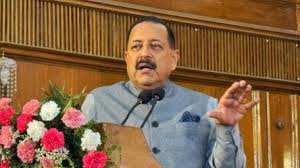In a notable development for over one crore central government employees and pensioners, the Centre has reportedly indicated that the 8th Central Pay Commission (CPC) will be constituted soon.
During a recent meeting, Union Minister of State for Personnel, Public Grievances and Pensions, Jitendra Singh, reportedly assured the Government Employees National Confederation (GENC) that consultations with state governments are ongoing and an official announcement can be expected shortly.
The GENC delegation, which met with the minister on August 4, 2025, raised concerns over the delay in the panel’s formation, the scrapping of the National Pension System (NPS) and Unified Pension Scheme (UPS), demands for restoration of the Old Pension Scheme (OPS), and pending dearness allowance (DA) arrears frozen during COVID-19. In response, Minister Singh reportedly arranged a follow-up meeting with the Pension Secretary to address the OPS issue.
Key Highlights & Potential Changes
1. Fitment Factor & Salary Hike
The fitment factor, a multiplier applied to current basic pay to arrive at the revised salary, is the core determinant of the pay increase.
Ambit Capital projects a fitment factor up to 2.46, with an overall compensation hike of 30–34%, though precise impact will depend on Dearness Allownace reset and allowances adjustment.
According to The Economic Times, the implementation may be on January 1, 2026, and the existing DA system is likely to continue.
Reports suggest that salary hikes could push minimum basic pay from Rs 18,000 to a range of Rs 32,940–Rs 44,280, based on fitment factors between 1.83 and 2.46.
Other projections estimate even higher- minimum basic pay could reach over Rs 51,000, with pensions rising from Rs 9,000 to over Rs 25,000, depending on final fitment factor.
Approximate Salary Scenarios:
For an employee with a current basic salary of Rs 18,000:
Lower bound (fitment factor ~1.83): New basic ≈ Rs 32,940.
Upper bound (fitment factor ~2.46): New basic ≈ Rs 44,280.
Best-case scenario: Fitment factor around 2.86, reanalyzed by some, could push minimum basic pay to roughly Rs 51,480.
You May Like: India to set Space Station by 2035, land human on Moon by 2040: Dr Jitendra Singh
What For Pensioners:
Minimum pension could rise from Rs 9,000 to a range of Rs 22,500–Rs 25,740, depending on final fitment factor.
Fiscal and Implementation Considerations
Exchequer Burden: Ambit Capital estimates the additional burden could be around Rs 1.8 lakh crore annually.
While the government aims to implement the new commission by 2026, recent analysis suggests rollout could be delayed to FY 2027 (April 2026 onwards), given procedural lags like delays in appointing commission members and finalizing Terms of Reference.
Dearness Allowance (DA): Though some earlier pay revisions involved merging DA into basic pay, current indications suggest DA will continue as a separate component, adjusting alongside the revised basic pay.
The 8th Pay Commission holds the potential to deliver a significant pay rise, possibly up to 40–50% for some levels, fuelled primarily by a generous fitment factor. If implemented as projected, both employees and pensioners stand to benefit substantially.


.jpg)
.jpg)
.jpg)
.jpg)

